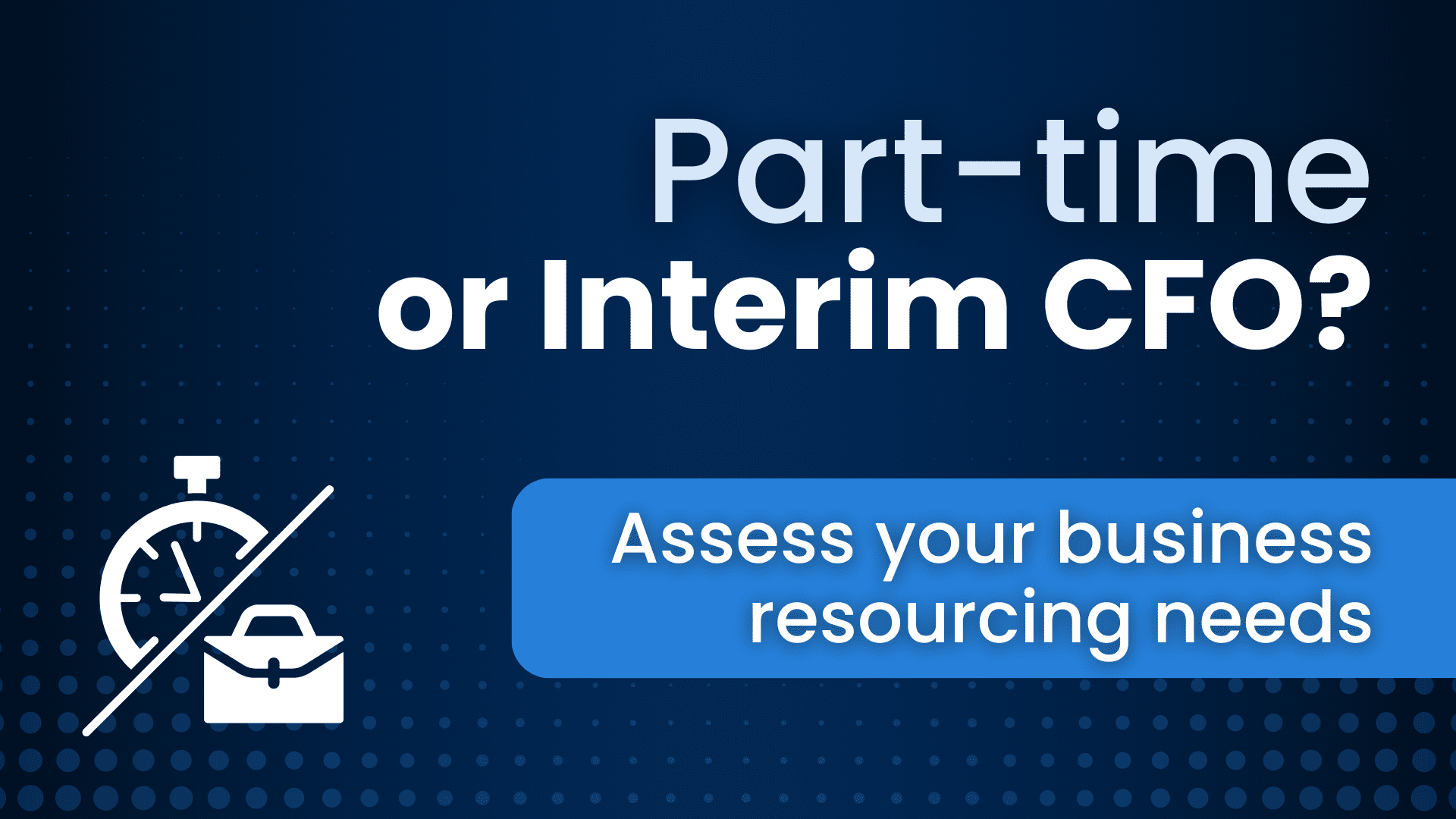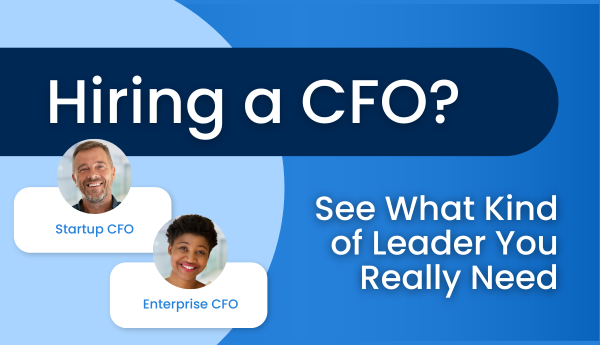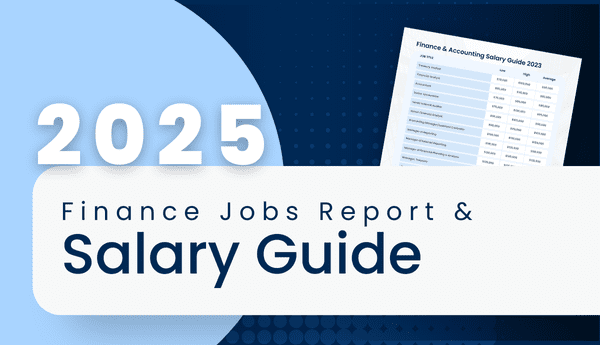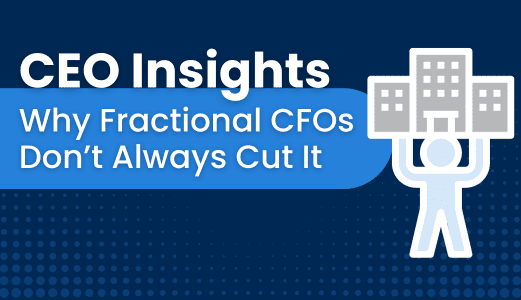When finance tasks start to take time away from other strategic areas of a company, CEOs are often faced with a dilemma: Do they hire an Interim CFO to get the company back on track, or hire a part-time CFO? Here’s a closer look at the needs for each CFO role.
When You Need an Interim CFO vs. a Part-time CFOSource: productcoalition.com If you run a startup or a small- to mid-size company, you probably can’t justify hiring a full-time chief financial officer (an oft-cited benchmark for when to hire a full-time CFO is annual sales of at least $10 million, but it can be a lot higher for a low-complexity business). But, you do need some level of financial help from an expert, someone who can cast a trained eye on your cash flow, margins, key performance indicators, and overall profit picture while you concentrate on your team, your products, and your strategies for growth. If you run a midsize to middle market business, you probably have a CFO. But what happens when you have to navigate a period of financial disruption and that CFO isn’t the right person to see you through it? Or your CFO leaves abruptly in the middle of a critical time? In both cases, you need a CFO, just not a full-time one, so the question is, when should you hire an interim (temporary) CFO, or a fractional (part-time) one? First, let’s be clear on the difference. Interim CFO vs. Part-time CFO: What’s the difference?Interim CFOs are finance experts who come in, usually on a full-time basis, typically for one to three months, to help steer a company through a financial crisis, an operations change, preparation for a sale, or the gap between one CFO’s departure and the hiring of a new one. Fractional CFOs are people who provide part-time financial services to companies on an ongoing basis. They might work for you only a few hours a week; their business model is that they do similar work for multiple clients. Fractional CFO: A helping hand for as long as you needThere are a variety of reasons your business might need a part-time CFO. When startups and small businesses are moving past ideation and starting to grow, and getting traction with sales, it’s time to formalize the back office. You didn’t hire a bookkeeper at first because you didn’t need one; you had a dream and a plan, but no customers. Now you have purchase orders, sales receipts, growing customer and supplier lists, receivables and payables, tax returns, and HR needs. As you grow, you may hire a bookkeeper to perform some of these functions, but a part-time CFO can set up your account systems, begin tracking your financial activity, and provide you with reports and insights on your company’s performance. As your business grows, a good fractional CFO can provide you with more services, including building cash-flow models, improving your balance of receivables and payables, providing advice on capital-market activities, and helping you think strategically about reinvesting profits in a way that benefits continued growth. As you hire more employees, you might employ the part-time CFO to help develop and implement your systems and train new staff accordingly. Also, if you now have a bookkeeper inputting data, your CFO can pull out KPIs from the data and help company executives interpret the financial statements and make sound decisions based on financials. And a part-time CFO can serve as a coach and sounding board, someone you can call when you have a question. If you need to raise capital, a part-time CFO with the right experience can help you locate and talk to potential investors, develop your pitch deck and marketing materials, and make sure you have an up-to-date capitalization table (showing ownership percentages and equity dilutions of founders and investors through each round of investment). A potential new investor needs to have faith in the company through the CFO, and there is only one shot to get this right. Same thing If you are trying to get a bank loan. These things need to be done right the first time, or you run the risk of the transaction falling apart. Interim CFO: A full-time job with a short-term contractAn interim CFO doesn’t typically deal with startups. It’s more likely to be middle-market companies who call on folks like me to come in on a full-time basis for a very short, defined period of time. Usually there is a catalyst, something undesirable happening to the firm’s financial health. Companies generally don’t bring in an interim CFO when things are going well. Or maybe the previous CFO left or was fired, or the company’s existing CFO doesn’t have a lot of experience with systems implementation/integration, or with mergers and acquisitions. An interim CFO will be an extra set of arms, legs and eyes to help the ownership through those processes, including the due-diligence phase if the company is being sold. (Private-equity buyers will have someone from their own team to lead the due-diligence process, but your interim CFO can help gather and present your financial information in the best light.) Interim CFOs often are hired to fill in gaps between full-time CFOs, for example, when a company loses a CFO suddenly due to death, disability, or sudden termination. Also, many private-equity CFOs make a career of moving from company to company at several-year intervals, and if your company has had a CFO depart and the new hire isn’t available to start for a couple of months, a contract CFO can oversee the finances in the meantime. Another reason your company might want to hire an interim CFO is to take advantage of his or her specific expertise, such as carveouts, systems implementation, mergers or acquisitions, or restructuring in the event the company needs to reorganize through bankruptcy. Some interim CFOs have expertise in specific industries; for example, CFOs with experience in housing have been called on to help real estate firms navigate downturns, such as when the market took a deep dive in 2009. When interim CFOs are finished with a project, they are done and (most likely) not to be heard from again. The average duration of an interim CFO contract is between a month and three months; usually that’s enough time to work through the issues. |
How to Hire an Interim CFO
With the many benefits of hiring an Interim CFO many companies are deciding to bring on a consultant to drive a project, or get the company on a strategic path for growth.
If you’re ready to hire an Interim CFO, Clarity can help facilitate your hire with our specialized interim resources.
__________
Clarity is a recruitment agency specializing in the placement of designated Accountants and Finance professionals in the GTA and Vancouver. Our mission is to improve decision-making in hiring by investing in behavioural science and hiring technology. We specialize in Project & Interim Resourcing, Permanent Search and Executive Search and recruit Finance and Accounting Executives for growth companies. We are a tenured team of successful recruiters who have worked in the major industries across Toronto and Vancouver. info@0mq.f0c.myftpupload.com.
Follow us on LinkedIn for updates, job postings and more.





